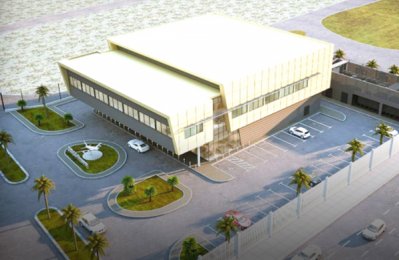Digital convergence, process automation to boost profits
Today, devices of all kinds across the Oil & Gas industry are equipped with intelligent sensors that gather data.
More Stories
Today, devices of all kinds across the Oil & Gas industry are equipped with intelligent sensors that gather data.
Since these devices are connected, they send the data forward to a repository like the cloud, and the data is then correlated and analysed on servers, write Chris Dartnell, President Oil and Gas, Industrial Automation Business and Shebin Jalal, Global Solution Architect, Oil and Gas, Industrial Automation Business at Schneider Electric.
The rapid output of that analysis enables better, faster process decisions that help cut costs and drive efficiencies. Consider the example of pump jacks in an oil field. Traditionally, oil companies would regularly schedule crew visits (every 6 months or so) to the pump jacks to make sure they were running, they present in a White Paper.
This was an expensive process. Oftentimes parts would get replaced whether or not they needed replacing. Certain pump jacks would be malfunctioning (and may have been malfunctioning for quite a long time). Others would begin to malfunction shortly after repair crews left.
There was no way to monitor their behaviour. New solutions now allow for these pump jacks to record data locally so that operational history
can be accessed remotely. The data which is collected by a local system is submitted to the cloud on an infrequent schedule (on exception only when the pump starts to experience distress).
Instead of waiting for a crew to come around, an AI engine allows these pumps to send a message to the crews that says “I think I’m going it fail in one week. My pump curve is off, and my on-board machine learning tells me a failure is imminent. Please come see me.”
This new approach reduces losses by limiting pump jack downtime and boosts the efficiency of the repair crews.
The constant pressure to reduce CapEx and OpEx is what drives both deployment of digitised solutions, such as pump control, and a fundamental rethinking of how core systems can work together.
The ability to link and integrate systems has become more affordable and less time-consuming as a result of digitisation.
Another example of digitisation-driven rethinking surrounds the traditional separation between process automation and power management in oil, gas and petrochemical plants.
For many years, the merging of these two engineering and operations silos was unthinkable or cost prohibitive. A lack of common communications, differing architectural standards, and siloed operations departments presented some formidable obstacles.
Technology innovation and updates to standards (like the IEC61850 electrical standard) have radically altered this situation. Now both process automation and power management can work together in a converged manner.
Converged power and process systems drive profitability through a combination of improved operational efficiency, improved safety and improved asset reliability. In nondigitised systems, for example, Motor Control Centers and low voltage systems that are linked to Distributed Control Systems (DCS) require many cables and a significant assortment of hardware in order to function properly. In the newly converged digitised systems, an element of “smart” low voltage emerges which enables a reduction of cables, faster commissioning, easier maintenance and an optimised footprint.
Such systems are designed around a profit engine functional architecture that combines process and low voltage electrical measurement and control. By closely linking electrical and automation systems, risks are reduced, costs are lowered and process and energy efficiency is improved.
Such integration saves Oil & Gas companies millions in both engineering costs, operation costs, and support/maintenance costs. However, implementation of such converged systems is not trivial. New tools are required. For example, multi-disciplinary software tools enable engineers to better perform the various mechanical, electrical and automation design tasks. Common templates of proven and validated functional modules simplify the engineering. Clear and well- defined interfaces ensure consistency and simplify data and model management.
Schneider Electric’s EcoStruxure Process and Power, for example, is designed as an open architecture supporting industry leading technologies, and encouraging multiple vendors to contribute to the solution. As a Tested, Validated, Documented Architecture (TVDA), it allows Schneider Electric to partner with technology vendors so that an expanded solution portfolio, validated for interoperability, is available to end users.
This architecture is focused on facilitating and automating the complex decision flows in an Oil & Gas plant. EcoStruxure project methodology utilises a powerful digital engineering platform that extends and connects with Engineering, Procurement and Construction (EPC) platforms.
Automation and electrical system engineering are coordinated, allowing changes in any part of the plant design to propagate through the system design. This powerful method combined with the power of EcoStruxure solution facilitates a natively integrated automation and electrical system, simplifying construction and speeding up commissioning.
Such a project methodology can reduce the CapEx by up to 20 per cent and improve time to completion by 30 per cent while reducing the project risks around onsite system integration.
Projects
















